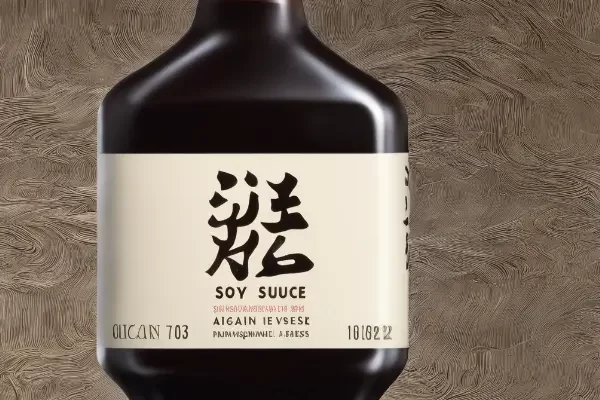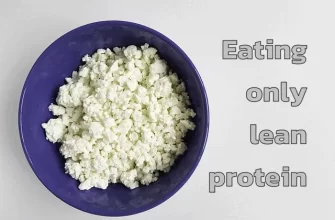When it comes to being pregnant, there are numerous types of food and ingredients that may cause worry. Soy sauce is an example of an item that frequently prompts inquiries. Therefore, what is the situation with consuming soy sauce while pregnant? Is it favorable or unfavorable? We will examine this matter more closely.
Consistency
Soy sauce is a condiment made from fermented soybeans, roasted grain, water, and salt. It adds a savory flavor to a variety of dishes and is a staple ingredient in many Asian cuisines.
Benefits and Harms
There are a few factors to consider when consuming soy sauce during pregnancy.
- Nutritional Benefits: Soy sauce can provide some nutritional benefits due to its soybean content. It is a good source of protein, iron, and certain B vitamins. These nutrients can be beneficial for both the mother and the developing baby.
- Sodium Content: One aspect of soy sauce to note is its high sodium content. Excessive sodium intake can lead to increased blood pressure, swelling, and water retention, which are potential concerns during pregnancy. It is important to moderate your sodium intake and consider using low-sodium soy sauce or limiting your overall consumption.
- Allergies: Soy is one of the most common food allergens. If you have a soy allergy, it is best to avoid soy sauce altogether. However, if you do not have a soy allergy, consuming moderate amounts of soy sauce should not pose a significant risk.
- GMO Concerns: Traditional soy sauce is commonly created by fermenting soybeans and does not possess any genetically modified organisms (GMOs). Nonetheless, certain soy sauce available in the market may include GMOs. If you intend to steer clear of GMOs throughout your pregnancy, choose organic or non-GMO soy sauce.
| Pros | Cons |
|---|---|
| Adds flavor to meals | High sodium content can cause water retention and high blood pressure |
| Contains essential nutrients and vitamins | May contain harmful additives and preservatives |
| Can improve digestion | May trigger allergies or increase the risk of foodborne illnesses |
| Helps with iron absorption | May interact with certain medications and affect their effectiveness |
| Can be used as a marinade or sauce | Potential contamination with heavy metals such as lead or arsenic |
To sum up, it is safe to include soy sauce in a balanced diet while being pregnant, as long as it is consumed moderately. Though it offers valuable nutrients, its sodium levels should be controlled. If you have a soy allergy or prefer to steer clear of genetically modified organisms, there are other options to consider.
Frequently Asked Questions About Soy Sauce During Pregnancy
During pregnancy, is it considered safe to consume soy sauce?
In most cases, it is okay to consume soy sauce while pregnant. This fermented soybean sauce is a staple in many different cuisines throughout the world. Nevertheless, it is essential to take it in moderate amounts and choose high-quality options with reduced salt, as is the case with all meals.
Can pregnant women gain any nutritional advantages from consuming soy sauce?
Protein, amino acids, vitamins, and minerals (potassium and iron included) are all present in soy sauce. Pregnant women shouldn’t rely on soy sauce as their primary source of nourishment because of the low quantities of these nutrients in it.
Is soy sauce high in sodium?
Indeed, the salt content in soy sauce is usually somewhat high. To maintain a healthy blood pressure and prevent fluid retention, expectant moms should limit their salt intake. If you’re trying to keep your salt intake under control, one option is to use reduced-sodium soy sauce.
Is it possible for the baby to develop allergies if soy sauce is consumed during pregnancy?
Even though most people don’t think of soy sauce as an allergen, certain babies can have a severe reaction to soy or anything that contains soy. It is advised that you consult a healthcare practitioner for further assistance if you have a history of soy allergy in your family or notice any adverse reactions in your newborn after consuming soy sauce.
Is it possible for soy sauce to have an impact on the baby’s growth and development?
Consuming tiny amounts of soy sauce during pregnancy is unlikely to significantly affect the baby’s growth. On the other hand, not everyone will react the same way to high salt or soy product consumption. To ensure that your diet is healthy and appropriate for both you and your unborn child, it is wise to see your doctor.
During pregnancy, are there any other options available as a substitute for soy sauce?
While pregnant, there are a few things to keep in mind if you wish to cut back on soy sauce. Tamari sauce, which is created from fermented soybeans without wheat, and liquid aminos, which are derived from soybeans or coconut sap, are popular substitutes that deliver comparable flavors without the high amounts of salt. Another option is coconut aminos.
Could a desire for soy sauce indicate a lack of certain nutrients during pregnancy?
While cravings for soy sauce and other Asian flavors are frequent during pregnancy, it’s important to remember that cravings are no indication of nutritional deficiency. These cravings are sometimes triggered by variations in hormone levels and changes in one’s taste preferences. The most important thing is to have a balanced diet so you may meet all your nutritional needs.
What are some ways to incorporate soy sauce into a nutritious diet during pregnancy?
If you’re trying to include soy sauce into your healthy pregnancy diet, it’s best to use it as a flavor enhancer rather than the main ingredient. To make sure you’re getting all the nutrients you need, try eating it with some veggies, lean meats, and healthy grains.









